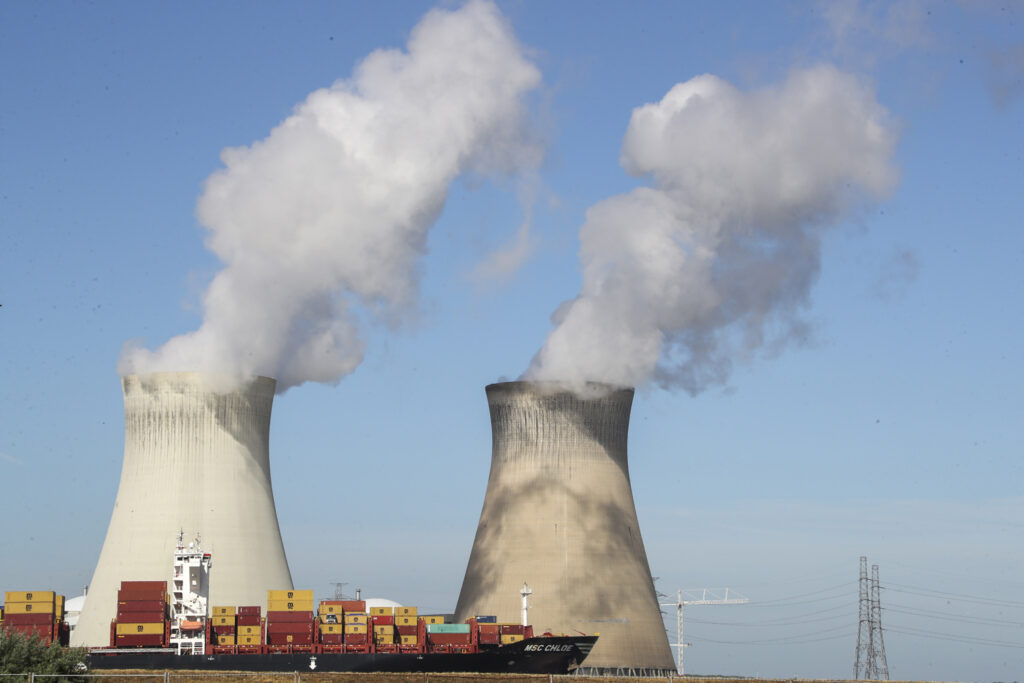Belgium is one step closer to scrapping its law on the nuclear phase-out: the Energy Committee gave the go-ahead for the abolition of the 2003 nuclear exit law on Tuesday.
The nuclear phase-out law – which dates from 2003 – imposed a closure date on Belgium's various nuclear reactors, while also prohibiting the construction of new power plants. Several parties have (unsuccessfully) been trying to do away with it for years, but Tuesday's vote has now opened the door.
Over the past 20 years, the law was updated more than once to keep some nuclear plants open longer. For example, Russia's invasion of Ukraine and the subsequent pressure on energy prices also resulted in the Doel 4 and Tihange 3 plants being allowed to stay open for ten extra years – beyond the planned closure date in 2025.
'An empty box'?
Francophone liberals MR and Flemish nationalists N-VA have been wanting to do away with the law for years. However, abolishing the law was out of the question for the previous Federal Government (which included greens Groen and Ecolo, who were behind the push to phase out Belgium's nuclear reactors).
The new Federal Government, however, does not include the greens, and a compromise on the issue was quickly found. In its coalition agreement, the 'Arizona' Government is clearly committed to nuclear energy, albeit not exclusively.
The bill was initially proposed by Belgium's new Federal Energy Minister Mathieu Bihet (MR), who contributed to the creation of this legislation by submitting these texts as an MP. In addition to the governing parties, the bill also received the support of the Flemish far-right Vlaams Belang and Flemish liberal Open VLD parties.

Former Federal Energy Minister Tinne Van der Straeten (Groen). Credit: Belga
Greens Ecolo and Groen voted against it, while radical left PTB-PVDA did not participate in the vote or the debate. Francophone socialists PS abstained, stating that security of supply and affordability of energy are paramount.
"Nuclear energy is not a religion, nor are the exit dates sacred," said Federal MP Dimitri Legasse (PS). However, the problem is that the text does "not offer a global vision of the energy future," which is why his party is abstaining.
Famously opposed to nuclear energy, former Energy Minister Tinne Van der Straeten (Groen) called the text "pure symbolism" and "an empty box." She also regretted that no concrete project had emerged from the bill. "Of the two power plants that can reasonably easily be extended, the closing date was not touched," Van der Straeten said.
Creating a roadmap
She also wanted to know where the Federal Government stands with the creation of the Supreme Council for Security of Supply (which is supposed to advise the government) and the effects on the capacity compensation mechanism, which was created to ensure the security of supply during the closure of nuclear plants.
"[Federal Energy Minister Bihet] has always said that this law will be a prelude to his roadmap," said Federal MP Christophe Bombled (MR).
"It is not by changing the law that there will suddenly be a new nuclear power plant. What we are doing here is opening the door. We are making it clear to the world that there is a future for nuclear power in this country," said Federal MP Bert Wollants (N-VA). He called it "logic itself" that the Supreme Court will be set up this year because, according to the coalition agreement, it already has to deliver opinions this year.
The text still has to be approved in plenary.

